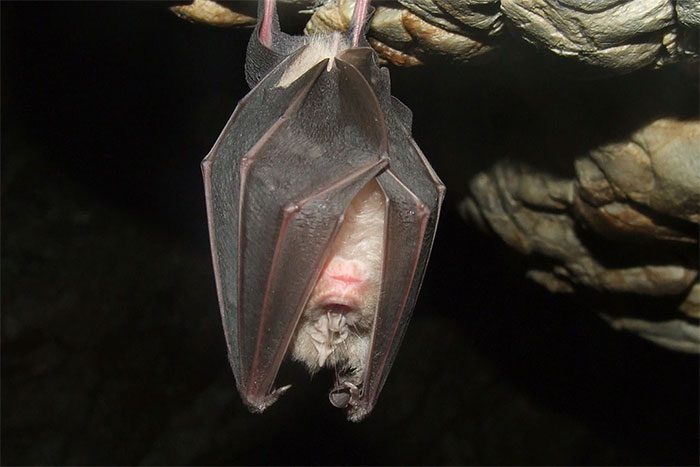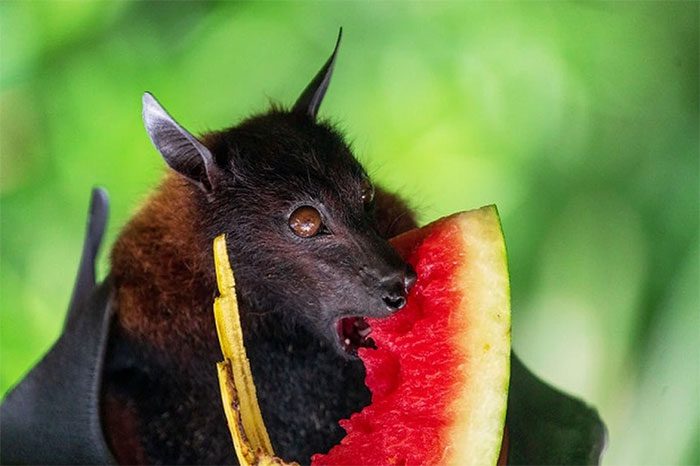Research on the special abilities of bats could lead to measures to enhance and protect human health.
We often know the saying: “too much of a good thing is not good.” For humans, consuming too much sugar can lead to diabetes.

Science is researching bats to improve human health. (Photo: Getty).
However, some other mammals, particularly bats, can defy this rule. Specifically, they can consume mangoes, bananas, or figs with high sugar content, weighing twice their body weight, and still thrive.
Unlike humans, these flying mammals can essentially eat sweet foods indefinitely without causing any negative health consequences, including diabetes.
A study published on January 9 in the journal Nature Communications reveals that the genetic adaptations of bats seem to have allowed them to develop a specific diet, as well as various special abilities in general.
“To me, bats are like superheroes. Each one has an incredible superpower, whether it’s echolocation, flying, feeding on blood without clotting, or eating fruit without developing diabetes,” said Nadav Ahituv, the study’s author.
The research found that the components of the pancreas and kidneys in fruit bats have evolved to suit their high-sugar diet.
In particular, the pancreas has more cells to produce insulin, a crucial hormone that helps the body lower blood sugar levels. It also contains more cells that produce another hormone that regulates sugar, known as glucagon.
Furthermore, the kidneys of fruit bats have more cells compared to regular bats to retain scarce salts and electrolytes while filtering blood.
“Fruit bats possess a genetic system that effectively controls blood sugar levels,” the study notes. “In contrast, the human body cannot produce or detect insulin, leading to issues with blood sugar regulation.”

Fruit bats (Megachiroptera) can consume large amounts of high-sugar fruits without suffering from diseases like humans do. (Photo: Getty).
Bats are one of the most diverse groups of mammals on Earth. Everything from their immune systems to their unique diets is considered by some scientists as “a triumph of evolution.”
This recent research is one of the latest examples of how studying bats can have significant implications for human health, including cancer research and virus prevention.
According to Ahituv, science needs to delve deeper into bats, particularly their sugar metabolism processes, to achieve advancements in helping patients with diabetes.
According to the Centers for Disease Control and Prevention (CDC), this research could have future implications in treating diabetes, a disease affecting approximately 38 million Americans.
Diabetes is also the eighth leading cause of death in the United States and the leading cause of kidney failure, lower limb amputations, and blindness in adults.




















































